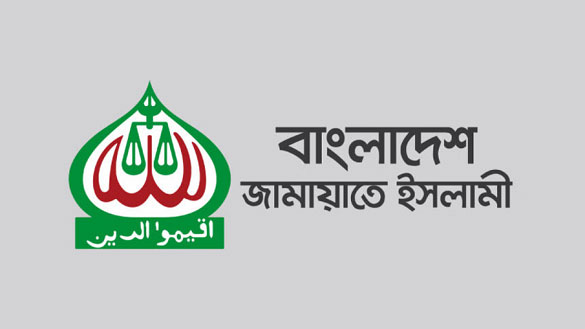New Age Islam Special Correspondent
21 December 2020

On 16th December 2020, on the Independence Day of Bangladesh when the entire Bangladesh was celebrating the country's independence and remembering the sacrifices of the founder of the nation Sheikh Mujib ur Rahman, Bangladesh Jama'at Islami's Narayanganj unit held a prayer meeting and discussion on the Independence.
This may seem paradoxical and also demonstrates Bangladesh Jama'at Islami's ideological crisis in a country where they are looked upon as enemies as they had assisted the Pakistan army in the genocide of the Bengali-speaking Muslims of Bangladesh. They were opposed to the creation of Bangladesh. They considered Bengali speaking Muslims enemies of Islam and therefore their killing was permissible and halal in their view.
In the Narayanganj meeting, Jama'at leaders prayed for real independence though did not elaborate on what they meant by real independence. They did not mention the role of Sheikh Mujib ur Rahman in the independence of Bangladesh as the entire Bangladesh commemorated Sheikh Mujib's sacrifice.
On 16th December 1971, Bangladesh came into existence after East Pakistan declared its independence from Pakistan after 10 months of bloody conflict during which millions of Bengali speaking Pakistanis were butchered by the Pakistani army assisted by Razakar, Ak Badr and Al Shams militia affiliated to Jama'at Islami. Millions of Muslim women were raped and murdered by the Pakistani army and the Razakars. The army crackdown started on 25 March 1971 and continued till 15th December. For the entire ten months the Muslims of East Pakistan went through the worst and bloodiest ethnic cleansing carried out by the Pakistan Army and the pro-Pakistan militia.
On 16th December, 1971, East Pakistan with the help of Indian army under the leadership of the then Prime Minister of India Indira Gandhi won Independence from Pakistan and has been prospering as an independent, sovereign and democratic nation since then.
After Bangladesh came into existence, Jama'at Islami Bangladesh was banned and its leaders went into exile to Pakistan. But after General Zia ur Rahman came to power in 1975 after the coup in which Sheikh Mujibur Rahman was assassinated, he lifted the ban on the Jamat and in 80s it allied with Zia ur Rahman's BNP and later formed government with Khaleda Zia.
After eight of its leaders and two of BNP were convicted by the War Crimes Tribunal of Bangladesh in 2013 for their involvement in the genocide, Bangladesh Jama'at Islami was again banned and barred from contesting elections.
The fact is that Jama'at Islami has been going through a crisis in Bangladesh because of its idelogical confusion. It believes in the establishment of an Islamic state on the basis of shariah and Shariah considers all the Muslims irrespective of language, ethnicity, colour, descent, cultural mores one nation. But the Jama'at Islami wrongly got involved in a conflict that was based on linguistic and ethnic differences. These differences were intensified by the perception of the Bengali speaking Pakistanis that the Urdu-speaking Pakistanis considered them inferior and deprived them of their economic and political rights and share. Bhutto-Mujib confrontation was a culmination of that conflict.
Being an Islamic organisation, Jama'at Islami should have kept itself aloof from the linguistic conflict as it was not a war between Islam and Kufr. But it got involved in a nationalist conflict. Ideologically it does not believe in nationalism but in Pan-Islamism. Its overt and covert support to militant organisations like Taliban is a clear testimony to this. But in 1971, it got involved in the then Pakistani political leadership's narrow nationalistic and linguistic misadventure. Islam does not support differences on the basis of language, ethnicity, colour race and culture and therefore does not consider armed or peaceful tussle between different linguistic and geographical Muslim groups a war between Islam and kufr. But the Jama'at Islami got entagled in the war between Urdu and Bengali linguistic community considering Bengali speaking Muslims kafir and enemies of Islam. Nothing can be more un-Islamic than this.
Jama'at Islami's ideological crisis had come to fore even during the life of its founder Maulana Maududi. He had opposed the Partition but when Partition really happened and Pakistan came into existence, he relocated to Pakistan. Later when someone asked him about the Muslims who stayed back in India, he said that he did not mind if Muslims in India were treated like Malechhas.
Now that they have become totally unfit in Bangladesh, they are trying to consolidate their base in Bangladesh as flag bearers of Islam and as proponents of Islamic state in Bangladesh, not as promoters of Urdu language. But the people of Bangladesh perhaps will never forget that Jama'at Islami had been a party in a war that was based on linguistic and ethnic differences. Its leaders and cadres killed and raped millions of Muslim women because they believed that these women were enemies of Islam and raping enemies of Islam was not only permissible in Islam but also rewarding in the Hereafter.
Therefore, the Narayanganj meeting held by the Bangladesh Jama'at Islami was only a futile attempt by it to keep itself afloat in the 'enemy waters' after its biggest ideological debacle in Bangladesh in 1971. Jama'at Islami has lost its relevance in Bangladesh.

No comments:
Post a Comment